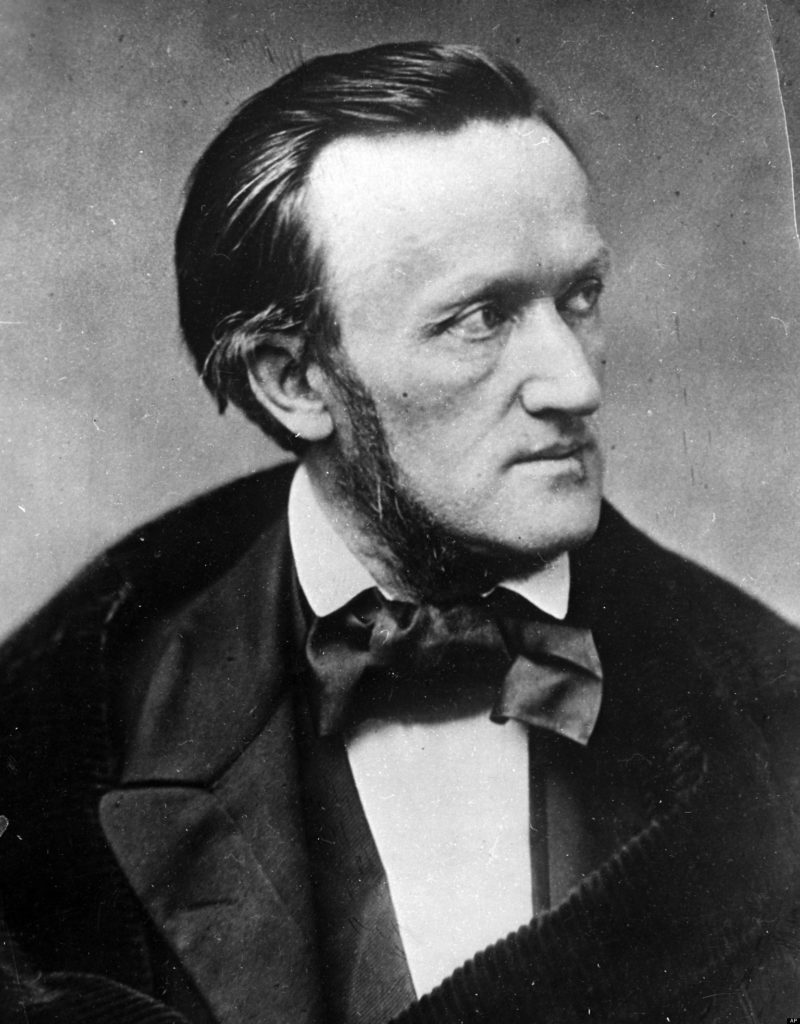
Had I not taken a necessary holiday respite from both Music History Monday and Dr. Bob Prescribes, my January 2 and 3, 2023, posts would have featured Richard Wagner’s opera The Flying Dutchman, which received its premiere on January 2, 1843, in Dresden. The story of the opera, and the DVD I was going to feature in my Dr. Bob Prescribes post of January 3 are simply too good to pass up, and so here is the Dutchman, better late than never!
In August of 1837, the 24-year-old Richard Wagner accepted the job of music director at the municipal theater in Riga, the present-day capital of Latvia. For Wagner, who’d been moving around from one low-end musical job to the next for the previous three years, Riga was the bottom of the barrel, nowheresville, the end of the line: a predominately German-speaking burg that was, nevertheless, part of the Russian Empire and a gazillion miles from the centers of German culture he so longed for. But Wagner, as he always did when he had to, persevered, and putting aside his despair, he made the Riga gig work, at least at first. To great local acclaim, he conducted fifteen different operas during his first season in Riga and twenty-four during his second. He even managed to do some composing himself; those first two seasons in Riga saw the composition of Act One and most of Act Two of what is considered his first real opera, Rienzi.
It was because of his popularity with the opera-going public in Riga that Wagner managed to hold down his job for two consecutive years, a Wagner world record. However, given his poor attitude towards the city itself, his insolence towards his boss (a theater director named Karl von Holtei), and his typically scornful attitude towards his fellow musicians, it was only a matter of time before he was fired. That inevitable but still humiliating event took place in March of 1839. Wagner didn’t handle the news of his firing well, and he publicly accused the theater director von Holtei of being:
“A homosexual and a pimp who made advances towards [my wife] Minna in order to deceive people as to his real nature.”

Whatever satisfaction Wagner’s parting shot at Karl von Holtei might have brought him, the fact remained that by the spring of 1839, he was unemployed, without prospects for employment, and deeply in debt to various lenders in Riga. Even worse, by having stayed put in Riga for almost two years, his many creditors from his previous places of employ – Magdeburg and Königsberg – had managed to track him down. In order to keep Wagner from once again skipping out on his debts, his creditors petitioned the Russian authorities to confiscate Wagner’s and Minna’s passports, which was done. It looked like debtor’s prison for sure unless the couple could escape. And that’s exactly what they managed to do.
Writing in 1978, Wagner biographer John Chancellor describes his escape:
“[On] 9 July 1839 Wagner fled from Riga to escape his creditors. This was the most sensational of his getaways.
It was almost as dangerous then to leave Russia without a passport as it is to leave [the Soviet Union] today. The frontier was very carefully guarded; every few yards a Cossack kept watch at a sentry-box. Wagner, Minna and his large Newfoundland dog, Robber, were taken by friends first to a smuggler’s den near the frontier where they spent the evening with [what Wagner later called] some ‘hideous, evil-smelling Polish Jews’; then, as night fell, they took refuge in an unoccupied sentry-box; at a certain moment they made a dash for the frontier and scrambled into Prussian territory. Had they been seen by any of the patrolling sentries they would have been shot. The details of their flight had been planned and executed by a certain Abraham Möller, a wealthy patron of the arts. Möller, who had been waiting for the fugitives in Prussia, now accompanied them to Pillau; on the way, the rude cart in which they were travelling overturned and Minna was so shaken that she had to spend the night in a peasant’s hovel.”
Once at the port at Pillau, Richard, Minna and their dog boarded the “Thetis,” a small merchant boat with a crew of seven. Lacking passports, the Wagners were traveling illegally, and the captain of the Thetis was almost certainly bribed in order to take them aboard.
The Thetis was bound for London, a voyage that should have taken a week. Instead, it took three and a half weeks. Three separate storms battered the ship during its journey. During the first one, the ship’s wooden figurehead was torn away and Minna’s trunk – containing her silver and clothing – was washed out to sea. The skipper sought refuge in a fjord on the Norwegian coast, where Wagner – weak-kneed and pea green from sea sickness – had an epiphany. …
Continue reading, only on Patreon!
Become a Patron!